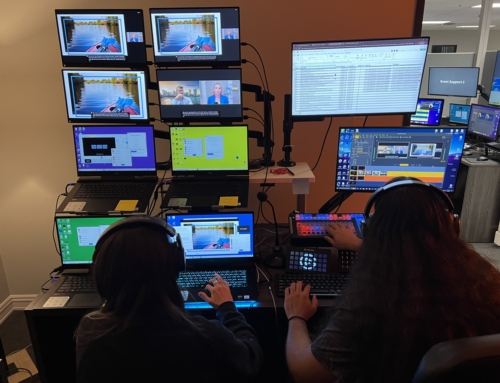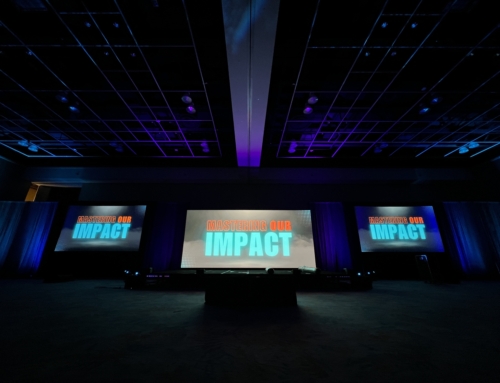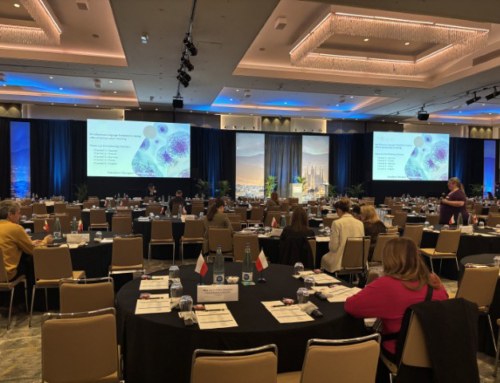Wondering about technical considerations for in-person, hybrid, and virtual events? Here are some answers from Chris Lopez, Director of Production at innoVia Productions.
What are the top three technical considerations a meeting planner should make to ensure a successful in-person event?
- Bring your production partner into the planning and development phase early on. Their specialized expertise can help direct the event vision and help determine which venues and meeting spaces are best suited for that vision.
- Attend site visits with your production partner. This is a great opportunity for viewing the venue to determine what’s possible and appropriate in a specific space. It can also reveal potential venue challenges such as poor acoustics or limited access to rigging and electrical services. A site visit is also a great opportunity for the production partner to build relationships with the various venue departments to ensure everyone is working in concert to ensure a successful event.
- Rehearse, rehearse, rehearse! There is nothing of greater value to production than organized, purpose-driven rehearsals. This is the best opportunity for the production team and presenters to fine-tune presentations, practice stage maneuvers, clarify audio and video cues, and make proper sound and lighting adjustments.
What about hybrid events?
- Hybrid events are new to a lot of meeting planners, so the first thing that is necessary is proper budgeting and an understanding of the unique logistics of hybrid events. Even though the different event types have similarities, virtual and hybrid meetings require their own suite of technical skills and technology requirements that are different from in-person events.
- It is important to ensure that the virtual attendees of the hybrid event have a shared experience and that the level of production doesn’t favor the in-person attendees over the online attendees. This requires planning and collaboration between the in-person and virtual technical teams. Yet another reason to involve your production partner early.
- The expectations for remote and onsite presenters should be the same. They all need to be available for rehearsals, content planning, and technical checks. Unprepared presenters create the impression of an unpolished production and can often cause delayed starts. So, whether remote or in-person, all presenters should plan to be part of all pre-show preparations.
How can we ensure a successful all-virtual event?
- With all the potential for internet issues, technical checks are a must. These “Tech Checks” allow remote presenters to diagnose and troubleshoot audio, internet, and lighting issues prior to the show. They also help to alleviate delayed starts which can lead to attendees leaving.
- Another consideration that is often neglected is accessibility for users with hearing or visual impairments. There are many great technologies available to accommodate special needs and they should be part of the planning.
- As with the other event types, do not skimp on rehearsals. Due to the many available options and components in a virtual event, it is critically important that all presenters understand and are comfortable with the technology. The virtual world is not a place to try to “wing it.”






